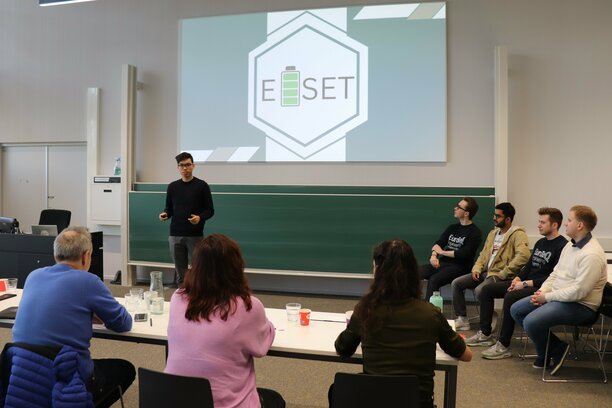DAF Trucks: challenge owner of the first hour
‘The Faces of Challenge-Based Learning’ series: Jac van Orsouw and Kati Brock of DAF Trucks have been challenging student teams as stakeholders in CBL competitions for years.
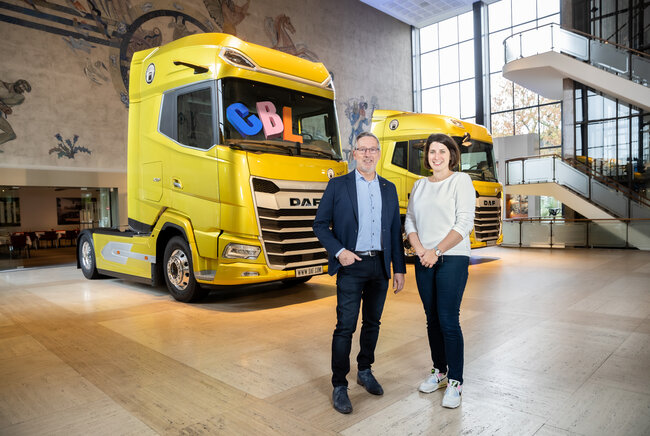
With the innovative educational concept of Challenge-Based Learning (CBL), we are training the engineers of the future at TU/e. Starting this academic year, CBL will play a larger role in the curricula of all our bachelor's programs. Through a series of stories we give a face to the form of education that sometimes takes students - and teachers - out of their comfort zone but, above all, prepares them for the challenges they will have to tackle as engineers. In this episode: Jac van Orsouw and Kati Brock of DAF Trucks, one of the first companies to get involved in our CBL education.
When you encourage students to accept an open ended challenge, you often receive unexpected and refreshing ideas. At DAF Trucks, challenge owner of the first hour, they know everything about that.
“Whereas a consultant would confide in his profound knowledge of the matter, students may frequently present plans that are completely out-of-the-box,” says Jac van Orsouw, who, after his retirement, continued working at DAF and remained closely engaged with the TU/e innovation Space. “Working with young students gives me so much energy, it’s something I won’t stop doing anytime soon.”
Kati Brock works as a strategic planner (digital) services at DAF Trucks. She’s studied at TU/e herself and throughout her professional career she’s always been associated with our university. “In my time as a student mostly Philips and ASML supplied cases. I’m glad DAF is joining in now as well. Annually, about 150 college and university students graduate at DAF and since the very beginning Jac and I have been involved in innovation Space.”
Diversity of ideas
In the past years, Brock and Van Orsouw had the opportunity to challenge and guide five student teams. The most recent challenge that TU/e students took on for DAF Trucks: how do you make EV batteries for trucks as sustainable as possible, how can you offer them a second life and how do you generate business from it?
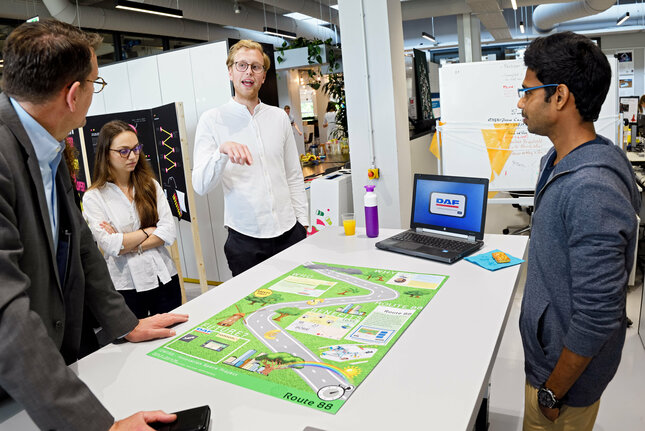
“Sustainability and mobility are subjects that appeal to a wide range of students,” says Van Orsouw. “Instead of assigning students of one particular program to a challenge, it's being approached in an interdisciplinary manner. The diversity of ideas that that provides, isn’t only nice for us giving the assignment, but also for the students themselves. They really learn a lot from each other during the project and gain insights they wouldn’t easily have gained following regular classes.”
By framing the challenge not too much, we want to encourage entrepreneurship among students to the fullest extent.”
Jac van Orsouw, DAF Trucks
For innovation Space challenges it is important to keep the character of the assignments open. “By framing the challenge not too much, we want to encourage entrepreneurship among students to the fullest extent,” Van Orsouw explains. “It took us a while to find our best practice here. Sometimes the assignments were too broad at first. Obviously, in our challenges it’s much more about the process than about the efficiency and the final outcome, but it has to be workable.”
What is Challenge-Based Learning?
In this innovative educational concept, students work together to experience how their discipline can contribute to solving challenges from the world around us. They learn what knowledge and expertise is needed to do so and can immediately apply and deepen the knowledge they have acquired in practice by studying or doing research.
Together with students from other disciplines, as well as stakeholders from business, government or science, students learn to think at the system level. In the process, they also learn various other competencies such as collaboration, communication, planning and organization. Student teams are the place par excellence where students can acquire these skills.
Interaction with teachers
To make sure that teachers as well as owners give the same signals to students, consultations take place periodically. “We want to avoid conflicting messages coming from the TU/e and us,” says Van Orsouw. “We schedule regular meetings and interactive moments with teachers to share knowledge and discuss progress. That’s why the curriculum and our assignments fit together quite well. We complement one another perfectly.”
Vision for the future
Since the distance between DAF and TU/e is small, face-to-face meetings are scheduled frequently, which is beneficial to all parties involved. “That’s how we too learn every day,” Brock believes.
“I sincerely hope that in the future, not only the student teams will be interdisciplinary, but also the challenge owners. I’d like a joint assignment with for example Jumbo of Eindhoven Airport. Instead of thinking inside your own little silo, you go and undertake based on a complete ecosystem. That would bring tremendous added value to DAF, and I believe also to all other parties.”
I really hope that stakeholders will also collaborate in the future. I’m totally up for a joint project with for instance Jumbo or Eindhoven Airport.
Kati Brock, DAF Trucks
Van Orsouw adds that it’s relatively easy being a challenge owner, to network with interesting companies in an accessible way. “The link to other challenge owners is quickly made. This is how at DAF we’ve already built multiple long-term relationships with organizations that are valuable to us.”
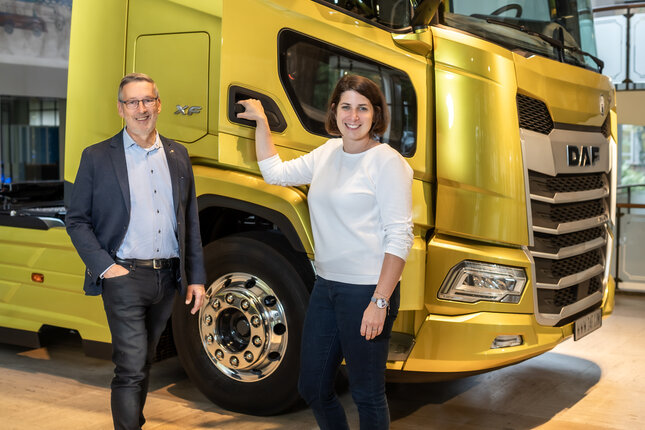
Much more than building trucks
Van Orsouw explains that for a B2B company such as DAF it’s not always straightforward to retain students. “You realize that they often prefer a business-to-consumer assignment from PSV for example. Yet we love to challenge students to come and have a look. We’re so much more than just a truck builder. The mere complexity of the enterprise and the challenges we’re faced with daily, are super valuable and enlightening to students.”
Long-term investment
If DAF would encourage other companies to take part in innovation Space? “Not really,” Brock smiles. “Because then there’s a slighter chance that we as DAF get chosen. But kidding aside, I can recommend it to everyone. It will cost you extra working hours, because obviously you’ll need to invest in a good challenge, briefing and coaching. But there’s guaranteed return! I hope that we may continue to receive students at DAF Trucks for a long time. And that perhaps we ultimately can retain them by offering them an internship or a job.”
More Faces of Challenge-Based Learning
More on our strategy
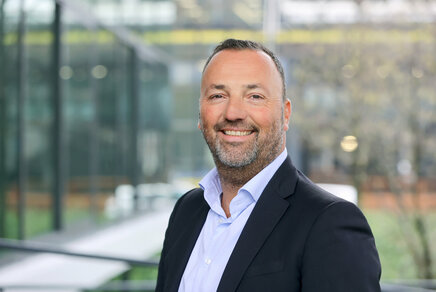

![[Translate to English:] [Translate to English:]](https://assets.w3.tue.nl/w/fileadmin/_processed_/c/f/csm_BvOF_2024_0319_AEV_license_TUe_Dirk_van_Meer_-_CORE_1__c976e259a5.jpg)
